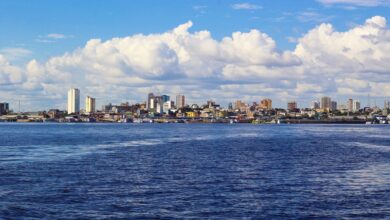World recycling day: do we really know the importance of this process?
World Recycling Day is celebrated on May 17, but although this process is very well known, few people put it into practice .

World Recycling Day with the aim of raising awareness in society about the importance of this process that treats waste, creates new jobs and, above all, seeks to protect the environment. Photo: Unsplash
LatinAmerican Post | Vanesa López Romero
Listen to this article
Leer en español: Día Mundial del reciclaje: ¿realmente conocemos la importancia de este proceso?
World Recycling Day
Every May 17, World Recycling Day is celebrated internationally with the aim of raising awareness in society about the importance of this process that treats waste, generates new jobs and, above all, seeks to protect the environment and curb climate change. The celebration began informally in 1994, but in 2005 the United Nations Educational, Scientific and Cultural Organization (UNESCO) proclaimed May 17 as World Recycling Day. Since then, different environmental organizations have come together annually to carry out events that sensitize the civil and international community about the need for this process.
Likewise, it seeks to recognize the importance and dignity of the people who work in this, that is, the recyclers .
Also read: Is nuclear energy really dangerous?
Why is recycling important?
According to the United Nations Environment Program (UNEP), we are currently facing three environmental crises: the climate crisis, the biodiversity crisis and the pollution crisis . These are directly associated with greenhouse gases, which have part of their origin in the waste that remains on the surfaces of the earth or in bodies of water, such as rivers, lakes or even the ocean.
If waste is better used, pollution is reduced, as well as greenhouse gases, and, in that order of ideas, a stable global temperature is maintained that does not affect ecosystems and therefore does not destroy biodiversity of the species on our planet. Of course, we must bear in mind that recycling is not the only option to stop climate change, since it is necessary to make a social change in the way we consume in all areas of life. Recycling is precisely in this line, by seeking to make better use of waste, in order to generate consumption not only more responsible, but also sustainable.
Do we know how to recycle?
We have heard the word "recycling" since our childhood. At school they call assemblies to explain their importance, they put colored trash cans and, in the excitement of the new, we make good use of them for a couple of days. We carefully remember the three R's: Recycle, Reuse, Reduce . But with the passage of time we forget why, and which waste goes in which bin. Surely in the rest of our adult life we continue to see the deposits of colors and if we remember that glass bottles go in white cans, we throw them away and we feel good about ourselves because "we are recycling."
To answer this question, just look at the fact that in Latin America, for example, most countries do not have regulations or laws that protect this process for the agents that are part of it . The irony of all this is that the pedagogy around recycling is very great, but the possibility that people do recycle and do it correctly is still very remote.
In Colombia, for example, at the beginning of 2021 the colors of the garbage bags were regulated to protect the dignity and health of recyclers , since they are in constant risk due to the possible hazardous waste they find in the garbage. However, to this day, 5 months after the regulation throughout the country, people still do not properly separate their waste and misuse the colors of the garbage.
So we could answer no. We do not know how to recycle as important as we know what it is. Celebrating World Recycling Day may remind us of the importance of this waste treatment process, but above all, the importance of the work that each individual has in this process.




